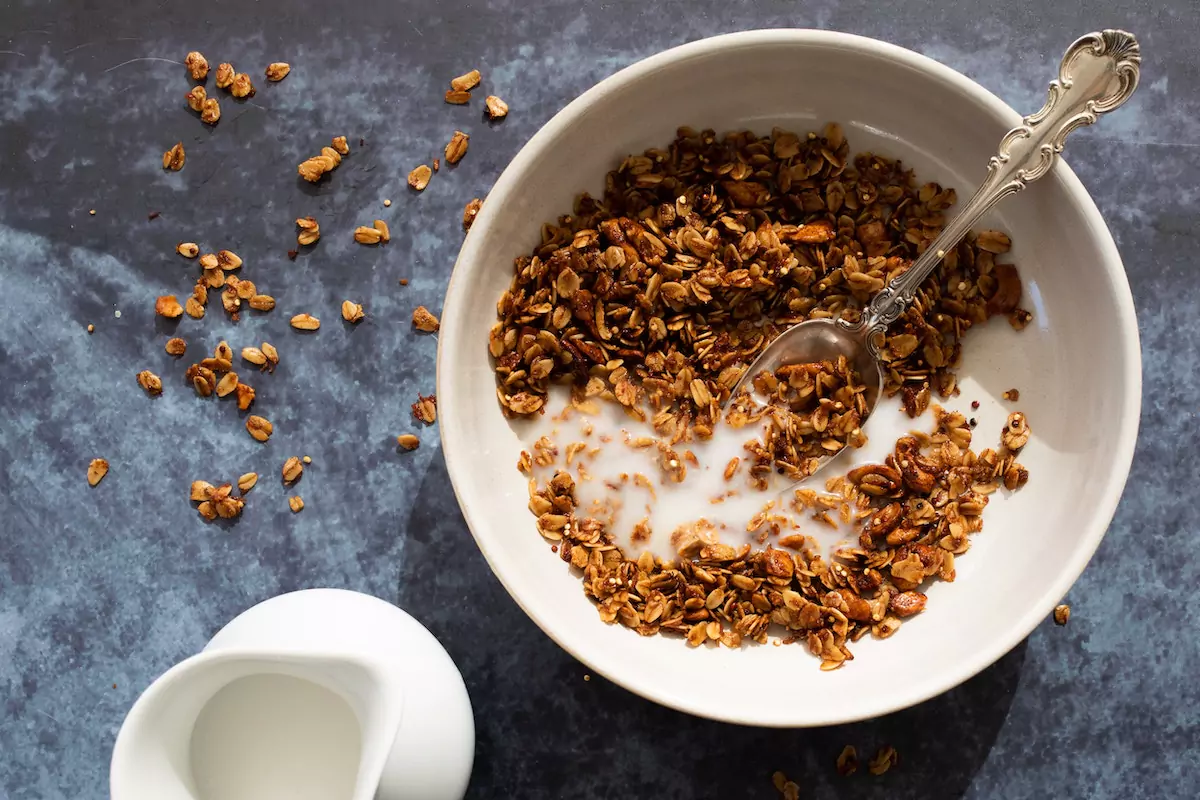When it comes to nutrition, the term “healthy” is thrown around a lot. We often associate it with foods that are supposed to be good for us, helping us achieve optimal well-being and performance. But here’s the thing, the concept of “healthy” is not one-size-fits-all.
Even foods that are commonly perceived as healthy can have adverse effects when consumed excessively or for individuals with specific health conditions.
So, let’s dive into the nuances of nutrition, question the notion of “healthy”, and explore the importance of moderation and individuality in our dietary choices.
THE SNEAKY SNACK THAT MAY NEED A MAKEOVER
You may be surprised to learn that some foods we consider healthy may not be as beneficial as we thought. Take cereal bars, for example. They can be a convenient choice when you’re on the go and need a quick energy boost.
However, not all cereal bars are created equal. Some can be highly processed and loaded with ingredients that are hard to pronounce. If you are looking to cut hunger and fill you a little more, choose one that is high in proteins and fibres and not high in sugars. But if you have the time and option to make your homemade cereal bars, it could be a better alternative, as you know what ingredients you are using.
THE SWEET DECEPTION THAT IS NOT ALWAYS JUICY
Fruit juices are another classic example. They taste delicious and refreshing, making them seem like a healthy choice. But beware! Many fruit juices on the market contain added sugars and artificial flavours. Even those labelled as “100% fruit” may lack the fibre that whole fruits provide, reducing their overall health benefits and satiety. In most cases, opting for whole fruit instead of fruit juice can be a smarter choice.
WHEN FLAVOURFUL FANTASIES TURN SOUR ON YOUR HEALTH
Let’s talk about yoghurt. Those brightly coloured and enticingly flavoured yoghurts may seem like a nutritious and exotic option, but appearances can be deceiving. Often, these flavoured yoghurts don’t even contain significant traces of the fruit they claim to represent. They’re loaded with artificial additives and can be high in added sugars. Furthermore, the 0% fat varieties may not be as healthy as we once believed. Lipids or fats are essential for the good functioning of our bodies. Going for a natural yoghurt without added sugars might be the healthiest choice.
FROM HEALTHY HERO TO SUGAR-LOADED VILLAIN
Let’s dive into granola. It has become a popular breakfast and snack option for many health-conscious people. But before we dig in, we’ll take a closer look at the ingredients.
Some brands add sugars, chocolate chips, and other extras that can turn the seemingly healthy choice into a sugar-laden treat. When selecting granola, opt for brands with low sugar content and minimal processing to ensure you’re getting the most nutritious option available.
REMEMBER THAT EVERYONE HAS PERSONAL NEEDS
It’s crucial to understand that the impact of a particular food can vary from person to person. What may be healthy for one individual may not have the same effect on another, especially for those with specific health conditions.
For instance, while whole grains are generally considered healthy, individuals with gluten sensitivity or celiac disease need to avoid gluten-containing grains. Similarly, athletes who need to ingest high amounts of food everyday may want to reduce whole grain products to avoid overeating fibres.
In recent years, personalised nutrition has gained recognition, it allows us to tailor our food choices to optimise our health and well-being. Consulting with professionals, such as registered dietitians or nutritionists, can provide valuable insights into personalised nutrition and help us navigate the complexities of our individual dietary needs.
MODERATION AND VARIETY ARE KEY
So, let’s rethink our notion of “healthy” and remember that it’s not about completely excluding certain foods but finding the right balance. Moderation, variety, and understanding our bodies’ specific needs are the keys to making informed dietary choices. By doing so, we can optimise our health, well-being, and performance in the long run.
SEE ALSO:
Tristan Boetti is a sports nutritionist. Through his company Performance & Bien-Être Monaco, he works with professional athletes as well as recreationally active individuals to help them achieve their goals through customised nutrition plans and expert advice.
Photo source: Heather Barnes for Unsplash
